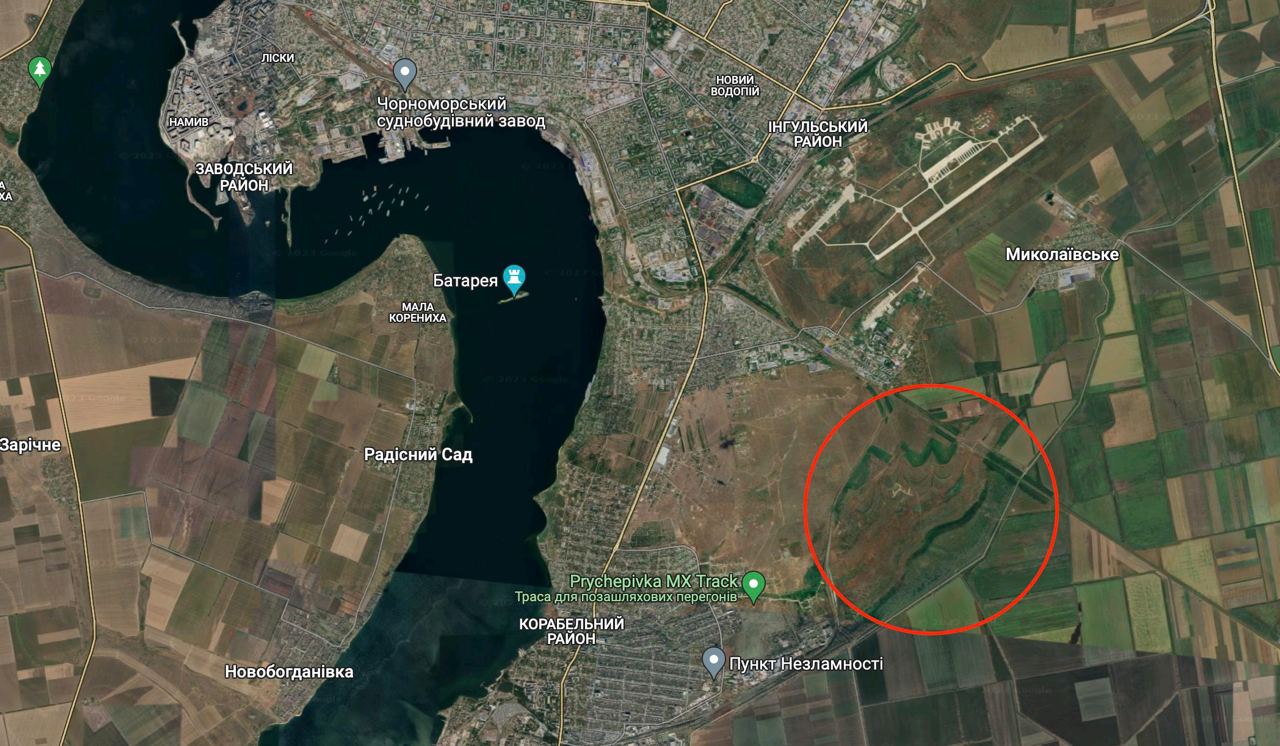Sienkevych explained under what conditions restoration of the Zhovtneve reservoir in Mykolaiv is possible: «First we need to find the source»
- News of Mykolaiv
-
•
-

- Yuliia Boichenko
-
•
-
13:33, 05 January, 2024
Currently, Mykolaiv is considering several options for sources from where it will be possible to fill the Zhovtneve reservoir with water after its restoration.
This was said by the mayor Oleksandr Sienkevych during his press conference on the results of 2023, NikVesti reports.
The mayor explained that the French organization Egis has identified five places that can potentially provide Mykolaiv with quality water — currently all results are under review by the relevant departments.
«Actually, the reservoir should be considered as a place where drinking water is stored. To date, we have the French organization Egis, which conducted research on the identification of five additional places to supply Mykolaiv with drinking water. We sent all this information to the Ministry of Reconstruction, the State Water Agency and the Ministry of Ecology. Yes, according to individual calculations, this amount will be more than 50 million euros. At the end of January, we will receive information — the feasibility study — and will be able to provide more detailed information,» Oleksandr Sienkevych said.
He also emphasized that restoration of the Zhovtneve Reservoir is impossible without an understanding of what kind of water it will be filled with.
«Today, restoring the reservoir itself without understanding what kind of water we will fill it with, of course, makes no sense. If we fill it from the Southern Bug River, the water quality will not change in any way. If we fill with water from other rivers, they will be of the same quality as in that river. Today, you understand, if it were possible to provide Mykolaiv residents with drinking water, we could only talk about this reservoir. The reservoir itself is the second stage after the first, which involves determining the source that will fill this reservoir. Today there are several options. All of them are being processed. There is no ready-made solution to date. But first the source, then the reservoir. In general, the reservoir will be able to store about 33 million cubic meters, but it needs to be adjusted so that this water does not go into the ground,» the mayor explained.
We remind you that in Mykolaiv they are going to reconstruct the Zhovtneve reservoir for 4.3 billion hryvnias. These funds will be spent on the development of the project and the implementation of works, according to the Program of Economic and Social Development of Mykolaiv Oblast for 2024.
Later, the head of Mykolayiv RMA Vitalii Kim explained that it is impossible to restore the reservoir after carrying out current repairs — capital reconstruction is required.
Prior to this, on September 19, 2023, during the Congress of Local and Regional Authorities under the President of Ukraine, Vitalii Kim stated that the Mykolaiv RMA will appeal to the Government and the Office of the President regarding support for the backup water supply project in Mykolaiv. Already a few years ago, commenting on this thesis, the General Director «Mykolayivvodokanal» Borys Dudenko said that about 300 million hryvnias are needed to restore the Zhovtneve Reservoir.
In the NikVesti article «The issue of water in Mykolaiv. Is it possible to restore the Zhovtneve Reservoir and how will it help the city?» we wrote that they want to restore the work of the reservoir, which has been inactive for 16 years, after carrying out its complete reconstruction. Tens of millions of euros are needed for this.
The Zhovtneve reservoir in the Vitovskyi district, near the Kulbakyne microdistrict, was built in 1957 and was used as a strategic supply of fresh water for the industrial and domestic water supply of Mykolaiv.
The project of the Upper Inhulets irrigation system, which included the Zhovtneve reservoir, was developed by the Odesa branch of «Ukrdiprocomunbud» in 1954. Its volume at the time of the start of operation was 15 thousand cubic meters, and later it grew to 32 thousand cubic meters of water (at maximum filling), and the depth in some places was up to 28 meters. It was filled annually, in the autumn-winter period (160 days), with Dnieper and Inhulets water.
In 2006, as a result of the slow water exchange, siltation of the reservoir occurred, and the mineralization of the water increased significantly. Along with the appearance in the water of a strong putrid, turning into mercaptan smell, there was an increase in the color of the water from 30 to 75 degrees, the dry residue from 300 mg/dm3 to 1120 mg/dm3, the content of chlorides and sulfates doubled, and oxidation.
The city management made a decision to drain water from the Zhovtneve Reservoir to clean the silt layer. In addition, maintenance and protection of the reservoir became unaffordable for the city budget. In this regard, the Mykolaiv city government, whose mayor was Volodymyr Chaika at the time, repeatedly appealed to the Cabinet of Ministers of Ukraine regarding the allocation of state subsidies for the implementation of restoration works to ensure the operation of the Zhovtneve Reservoir. However, at that time this issue was not too urgent for the state authorities.
In 2008, the project to clean and restore the reservoir was postponed. For 8 years, no one raised the question of the feasibility of carrying out works on the restoration of the reservoir, neither in the city nor at the state level.
In 2016, a video shot by a quadcopter was published on the network, showing the territory of the «Zhovtneve Sea», as the reservoir was called. In 2018, journalists of the «Inter» TV channel filmed a story where they showed that a landfill had already formed on the territory of the former reservoir.
In 2020, the problem of restoration of the Zhovtneve Reservoir was raised to a new level by Olena Kiseliova, a member of the Mykolaiv City Council. At that time, she expressed the opinion that the utility company «Mykolaivvodokanal» should seriously address the problem with water reserves and restore the operation of the Zhovtneve Reservoir.



